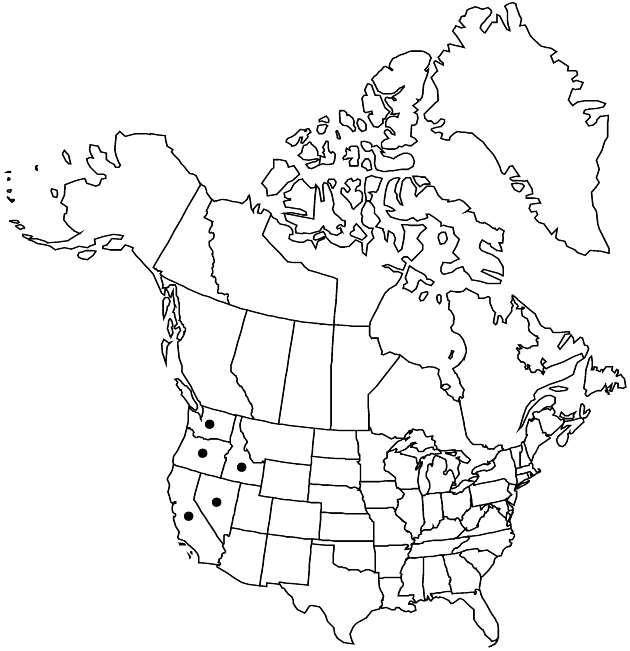Difference between revisions of "Pyrrocoma carthamoides var. cusickii"
Phytologia 71: 60. 1991.
Basionym: Haplopappus carthamoides var. cusickii A. Gray in A. Gray et al., Syn. Fl. N. Amer. 1(2): 126. 1884 (as Aplopappus)
Synonyms: Haplopappus carthamoides subsp. cusickii (A. Gray) H. M. Hall
FNA>Volume Importer |
FNA>Volume Importer |
||
| Line 56: | Line 56: | ||
|publication year=1991 | |publication year=1991 | ||
|special status= | |special status= | ||
| − | |source xml=https://jpend@bitbucket.org/aafc-mbb/fna-data-curation.git/src/ | + | |source xml=https://jpend@bitbucket.org/aafc-mbb/fna-data-curation.git/src/f50eec43f223ca0e34566be0b046453a0960e173/coarse_grained_fna_xml/V19-20-21/V20_950.xml |
|tribe=Asteraceae tribe Astereae | |tribe=Asteraceae tribe Astereae | ||
|genus=Pyrrocoma | |genus=Pyrrocoma | ||
Revision as of 20:31, 16 December 2019
Plants 10–15(–43) cm. Stems slender. Leaves: basal blades spatulate-lanceolate, 50–200 × 10–20 mm. Involucres campanulate or turbinate, 10–20 × 15–20(–30) mm. Phyllaries (loose, scarcely overlapping) lanceolate, apices acute to acuminate, mucro erect. 2n = 12.
Phenology: Flowering Jun–Sep.
Habitat: Pine forest, sagebrush scrub, dry slopes, openings in pine and mixed hardwoods forest, lava fields
Elevation: 900–2800 m
Distribution

Calif., Idaho, Nev., Oreg., Wash.
Discussion
Variety cusickii is recognized by its generally smaller size, and campanulate to turbinate involucres with loose, lanceolate phyllaries.
Selected References
None.
Lower Taxa
None.